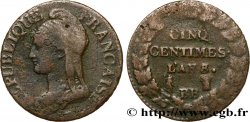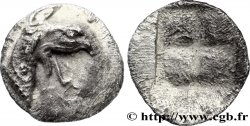fme_372335 - CONSULAT Médaille de du traité de Campo-Formio
недоступный.
Товар уже продан в нашем интернет-магазине (2016)
Цена: : 180.00 €
Товар уже продан в нашем интернет-магазине (2016)
Цена: : 180.00 €
Тип Médaille de du traité de Campo-Formio
Дата: 1797
Монетный двор / Город: Italie
Металл: bronze
Диаметр: 58 mm
Ориентация осей монеты: 12 h.
Гравер DUVIVIER Benjamin (1730-1819)
Век: lisse + corne BRONZE
Комментарии о состоянии
Très belle médaille avec une patine homogène, un peu tachée au revers à la fin de la légende
Лицевая сторона
Аверс: легенда: BONAPARTE GENAL. EN CHEF DE L'ARMÉE FRANCSE. EN ITALIE // OFFERT A L'INSTITUT NATION. PAR B. DUVIVIER A PARIS.
Аверс: описание: Buste du général Bonaparte, en uniforme, à droite
LES SCIENCES ET LES ARTS RECONNAISSANTS. Le général Bonaparte, à cheval, tenant une branche d'olivier, précedé de la Prudence et de la Valeur, celle-ci tenant les rènes du cheval. La Victoire plane derrière; elle place de la main drite une couronne au-dessus de la tête du général, et tient de la gauche l'Apollon du Belvédère, et des manuscrits. Exergue: (République française). Au-dessus de l'exergue à droite: B. DUV. (Benjamin Duvivier) [56 m]..
Обратная сторона
Реверс: легенда: LES SCIENCES ET LES ARTS RECONNAISSANTS // PAIX SIGNEE L'AN 6. REP. FR..
Реверс: Описание: Le général Bonaparte, à cheval, tenant une branche d'olivier, précédé de la Prudence et de la Valeur, celle-ci tenant les rênes du cheval ; la Victoire plane derrière, elle place de la main droite une couronne au-dessus de la tête du général, et tient de la gauche l'Apollon du Belvédère, et des manuscrits.
Комментарий
Cette médaille, gravée par Pierre-Simon-Benjamin Duvivier, parut au mois d'avril 1798, Moniteur du 28 germinal an 6 (17 avril 1798).
L'armée d'Italie est une armée de la Révolution française.
Son théâtre d'opérations se cantonna sur le littoral et l'arrière-pays des Alpes-Maritimes jusqu'à ce que Napoléon Bonaparte en prenne la tête et triomphe en Italie durant deux campagnes mémorables..
L'armée d'Italie est une armée de la Révolution française.
Son théâtre d'opérations se cantonna sur le littoral et l'arrière-pays des Alpes-Maritimes jusqu'à ce que Napoléon Bonaparte en prenne la tête et triomphe en Italie durant deux campagnes mémorables..








 Cообщить об ошибке
Cообщить об ошибке Распечатать страницу
Распечатать страницу Отправить мой выбор
Отправить мой выбор Задать вопрос
Задать вопрос Consign / sell
Consign / sell
 Информация
Информация










